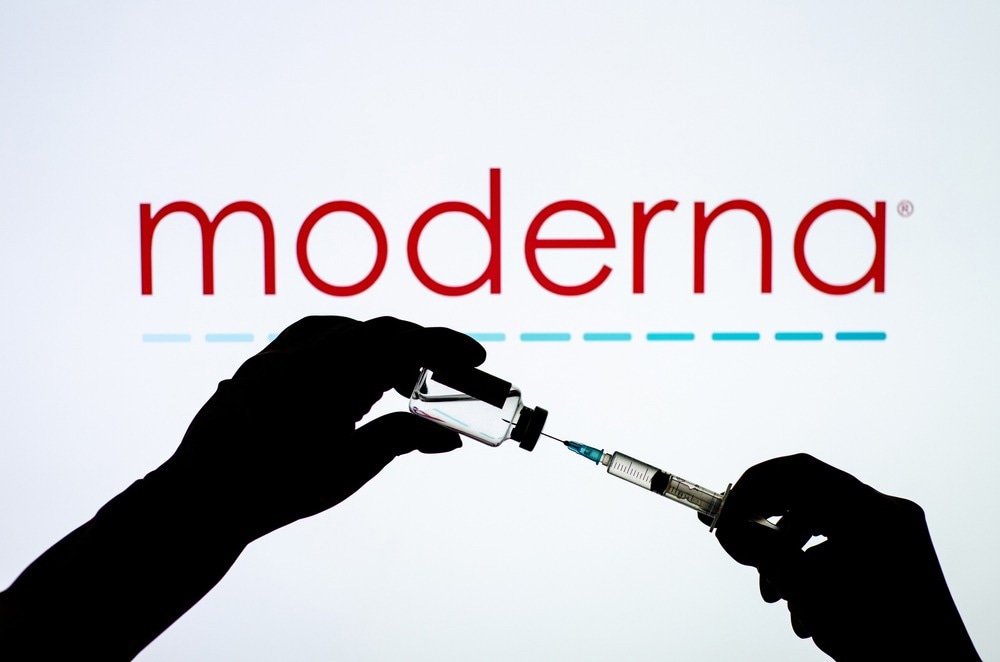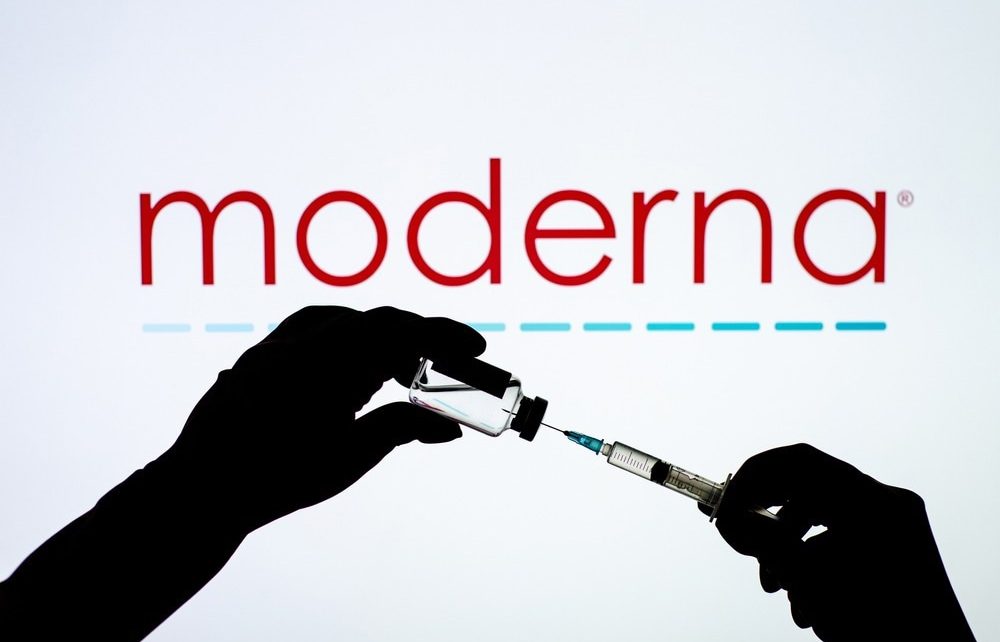A new Open Forum Infectious Diseases study reports the higher effectiveness of the Moderna messenger ribonucleic acid (mRNA) coronavirus disease 2019 (COVID-19) vaccine as compared to the Pfizer/BioNTech mRNA COVID-19 and Johnson & Johnson viral vector vaccines against all outcomes of SARS-CoV-2 infection.

Study: Comparative COVID-19 Vaccine Effectiveness Over Time in Veterans. Image Credit: Lutsenko_Oleksandr / Shutterstock.com
introduction
The COVID-19 pandemic continues to impact human health, healthcare systems, economic activity, travel, education, and businesses throughout the world. As a result, scientists at the start of the pandemic worked quickly to develop an effective vaccine to mitigate the spread of its causal agent, the severe acute respiratory syndrome coronavirus 2 (SARS-CoV-2.
The first vaccines were distributed in December 2019 and were based on the mRNA platform. These vaccines from Pfizer-BioNTech and Moderna introduce mRNA encoding the genetic code for the SARS-CoV-2 spike protein, which subsequently enters host cells, thus triggering an immune response.
Several other vaccines, including those that used a viral vector to introduce the spike protein by Johnson & Johnson and Oxford/AstraZeneca, as well as those using the inactivated whole virus and protein subunits, have also been developed. Upon comparing the efficacy of these vaccines, most studies reported differences in the induced immunity that favored the use of mRNA vaccines.
However, mRNA vaccines are more expensive and involve greater logistical issues, as they require more sophisticated facilities for their production and storage. Taken together, inactivated viral and viral vector vaccines continue to be used in many parts of the world.
The current study describes the temporal profile of the two mRNA vaccines and the Johnson & Johnson adenoviral vector vaccine against COVID-19. These three vaccines are approved for use in eligible individuals in the United States.
The initial use of these vaccines caused the number of infections to significantly drop throughout the U.S. However, as new SARS-CoV-2 variants appeared, along with waning immunity, both breakthrough infections and cases among unvaccinated individuals rose.
Available data from the Veterans Health Administration (VA) and other groups have reported increased effectiveness of the Moderna vaccine.
Study findings
Using the VA’s COVID-19 Shared Data Resource with a cohort of approximately five million veterans with a mean age of 64 years, 42% and 14% were 65 and 80 years or older, respectively. Almost 60% of the individuals in this cohort had one or more underlying medical conditions, over one in three had two or more, and 20% had three or more.
Just over 50% of the cohort were vaccinated by the end of October 2021, of whom about 50% received the Moderna, 40% Pfizer, and less than 10% received the Johnson & Johnson vaccine. During the same period, 7% of the cohort were tested for SARS-CoV-2 infection once or more, of whom 70% were unvaccinated at the time, whereas about 25% had been fully vaccinated against COVID-19.
Symptomatic illness was reported in 25% of those tested, about 75% of whom were unvaccinated. Hospitalization was required in less than 23,000 veterans, which included the same proportion of unvaccinated and fully vaccinated individuals.
Critical and fatal COVID-19 was documented in less than 8,000 veterans, including those who required intensive care unit (ICU) admission or died within four weeks of testing positive for COVID-19.
Vaccine efficacy (VE) decreased with time for symptomatic infection, hospitalization, ICU admission, and death. With the Johnson & Johnson vaccine having been received by less than 10% of the study cohort, the number of veterans with any of these outcomes was very small. Thus, this group was ultimately excluded from the final analysis.
Overall, the Moderna vaccine had a higher VE against symptomatic infection at both one and seven months from vaccination at 85% and 47% VE, respectively. Conversely, the Pfizer vaccine reduced symptomatic infections by 76% at one month; however, this decreased to 0.1% at seven months.
For other outcomes, the Moderna vaccine similarly had higher effectiveness, as it reduced hospitalizations by 77% at one month as compared to 73% for the Pfizer vaccine. At seven months, these vaccines exhibited reduced hospitalizations by 71% and 20%, respectively.
Against ICU admission or death, the Moderna vaccine was 81% effective as compared to 75% for the Pfizer vaccine. The Moderna vaccine maintained 77% efficacy against ICU admission at seven months as compared to 40% for the Pfizer vaccine.
The differences in outcome effectiveness diverged markedly after the first four months.
VE for all outcomes varied between the vaccines by age and underlying medical conditions. Both vaccines maintained comparable efficacy against severe and critical disease and death at one month; however, the difference was greater at seven months.
A higher VE was observed in veterans younger than 65 years old, as well as those with a single comorbidity, for severe or critical COVID-19. This was maintained at over 80% for both time points for critical disease or death with the Moderna but not the Pfizer vaccine, which had a VE against severe COVID-19 of less than 60% at seven months.
In older and sicker patients, VE declined over this time period. In those aged 65 years or over, the Moderna vaccine maintained over 70% VE against hospitalizations and ICU admissions, as well as those with two or more medical conditions. In contrast, the Pfizer vaccine was associated with less than 50% effectiveness against symptomatic, severe, or critical COVID-19 after two months.
Implications
The study findings indicate the superior efficacy of the Moderna mRNA vaccine as compared to the Pfizer vaccine, especially in older patients or those with more comorbidities. The difference between these vaccines is particularly evident in hospitalizations, ICU admissions, and deaths. Waning VE was evident for almost all outcomes over time, especially for the Pfizer vaccine, at less than 50%.
These results are not in agreement with many earlier reports. This could be explained by differences in age, location, and socioeconomic status of the participants. In the current study, each of these factors was matched before comparisons were made.
If these results are validated by more research, this may shape future recommendations on booster doses for veterans, as well as their timing, depending on age and chronic disease status.
- Mayr, F. B., Talisa, V. B., Shaikh, O. S., et al. (2022). Comparative COVID-19 Vaccine Effectiveness Over Time in Veterans. Open Forum Infectious Diseases 9(7). doi:10.1093/ofid/ofac311.
Posted in: Men's Health News | Medical Research News | Medical Condition News | Women's Health News | Disease/Infection News | Healthcare News | Pharmaceutical News
Tags: Chronic, Chronic Disease, Coronavirus, Coronavirus Disease COVID-19, covid-19, Education, Efficacy, Genetic, Healthcare, Immune Response, immunity, Infectious Diseases, Intensive Care, Pandemic, Protein, Research, Respiratory, Ribonucleic Acid, SARS, SARS-CoV-2, Severe Acute Respiratory, Severe Acute Respiratory Syndrome, Spike Protein, Syndrome, Vaccine, Viral Vector, Virus

Written by
Dr. Liji Thomas
Dr. Liji Thomas is an OB-GYN, who graduated from the Government Medical College, University of Calicut, Kerala, in 2001. Liji practiced as a full-time consultant in obstetrics/gynecology in a private hospital for a few years following her graduation. She has counseled hundreds of patients facing issues from pregnancy-related problems and infertility, and has been in charge of over 2,000 deliveries, striving always to achieve a normal delivery rather than operative.
Source: Read Full Article



